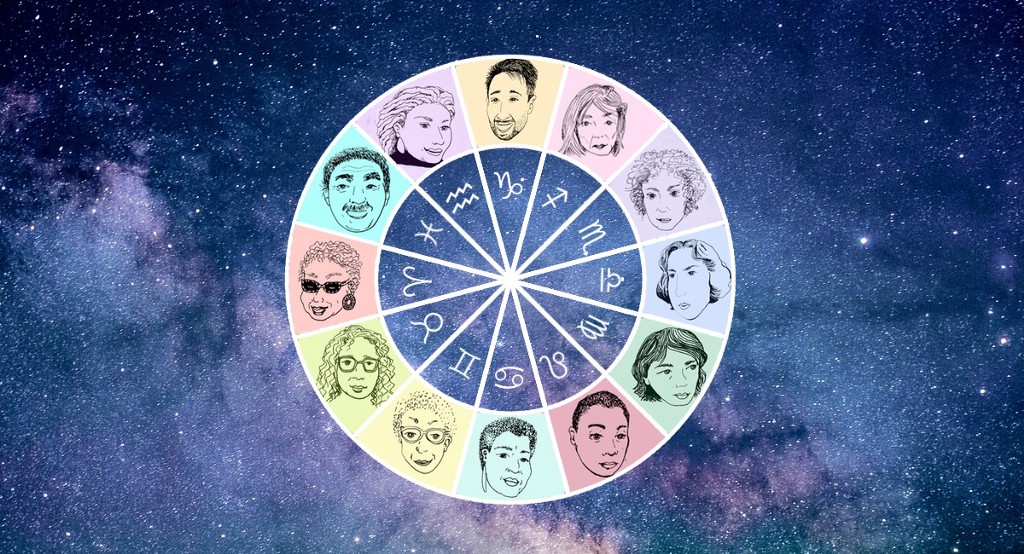news
For the Love of Joan Didion
F

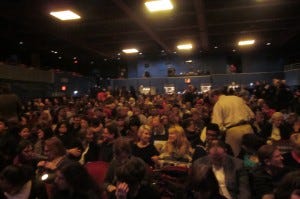
I’d never been to a literary event before where the author gets a standing ovation for simply taking the stage, but then again, this was Joan Didion. This literary event — which was last night, at Symphony Space, for Thalia Book club and Didion’s latest, Blue Nights — was not like most. Instead of consisting of a collection of people brought together by a love for literature, this was a collection of people brought together by a love for one woman: Joan Didion (although the former potential for shared passion certainly shouldn’t be excluded).
1. Symphony Space host Isaiah Sheffer.
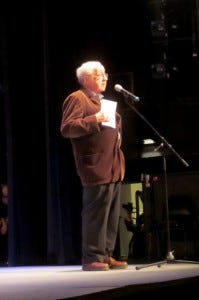
And Joan Didion is not your stereotypical writer. She is not esoteric, draped in tweed, or nerdy. She is biting. She is glamorous. She is a literary rock star.
Case in point #1: Say what you will about Jonathan Franzen, but I certainly didn’t care about what he was wearing when I saw him read. Didion, on the other hand: lots of black (of course), heeled oxfords, a fuchsia-colored cashmere scarf, two thin gold bangles, and a black tortoiseshell clip in her pale blond hair. Classically stylish, always.
Case in point #2: When I told a non-writerly friend that I was going to go see Didion, my friend said, “Oh my god, I’m obsessed with her!” And then, confessionally, “I haven’t even read her books. She’s just so badass.”
Badass, indeed. The night opened up with a screening of the “audiobook for the eyes” of Blue Nights made by Didion’s nephew, Griffin Dunne, in which she skulks around Manhattan like a badass amidst photos of her daughter, Quintana, and the result is heartrendingly beautiful. But don’t take my word for it: watch it here.
1. Sarah Elizabeth Greer, a solo performer and nonfiction writer, & Meryl Williams, a filmmaker and musician. They were both pretty excited about sitting right up front (as was I!). 2. David Mramor, a painter and songwriter, & Nath Ann Carrera, a song and nonfiction writer.
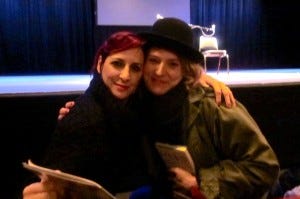
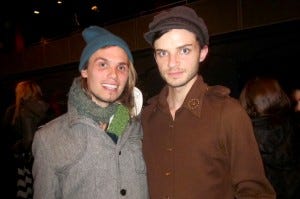
Then, after the standing ovation of a welcome, Didion and Dunne took their seats. Dunne told us of seeing a woman on the subway who was so entrenched in her copy of Blue Nights that she didn’t even look up from her page as she walked through the car doors. But the woman was actually a sixteen-year-old girl, and when Dunne asked her how she was enjoying the book, she said, “Well, I’ve been reading her since The Year of Magical Thinking came out.” And that is the power of Didion: While Symphony Space’s uptown locale seems to scare away many young literature lovers (it shouldn’t — it takes 10 mins to get there from Union Square), last night’s crowd was certainly more of an all-ages affair.
1. The crowd lets out on the street.
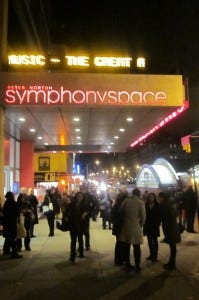
Dunne and his aunt talked, and his memories were corrected by hers — the Corvette of hers he used to “borrow” was Daytona Yellow, not Banana; the party was for Tom Wolfe, not Janis Joplin. When they ran out of things to reminisce about, Dunne pulled out a piece of paper full of questions, just in case he had a “Rick Perry moment.” From this, we learned that Blue Nights was originally conceived as a book about raising children, but Didion discovered she knew nothing about the topic. “I could research it,” she said, “but why?” She also didn’t think that writing either The Year of Magical Thinking or Blue Nights would be cathartic; instead, she wrote both because she felt like she had to, in order to process her thoughts. And we also found out that Didion and her late husband, filmmaker John Dunne, would get into days-long arguments after he read and then critiqued drafts of her work.
It was during the Q&A that Didion got the most Didion-ish. Some questions were met with the briefest of answers, and, in contrast to her deeply personal work, she seemed to be working her hardest to not reveal all her cards. But then, someone would ask about something that Didion liked, and she would raise her long, thin arms, and wave her long, thin fingers, and say something incisive and darkly funny and utterly, utterly true. Some great quotes:
- (On what prompted her to write The Year of Magical Thinking): “I had a strong feeling that I had to [write about grief] because no one had told me what it was like.”
- (On the fallacy of memory) “I’ve never been interested in if things were literally true or not.”
- (On how The Year of Magical Thinking and Blue Nights are similar in subject matter): “Aging… is a form of grieving, in my mind.”
- (On how Didion keeps up her momentum): “On the nights I’m not at a noisy restaurant, I’m in bed at 7:30.”
1. Robyn & Claire, who are both psychology majors at The New School, with their signed copies of Blue Nights in hand.
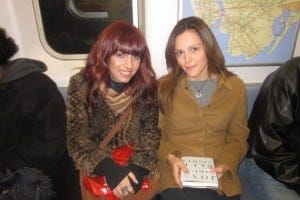
When the night was through, fans lined up to get Didion’s autograph. The energy in the room was palpable. We had come here to pay homage to and bask in the magic of one of our literary goddesses, and she had given us what we asked for.

by Joan Didion

***
— Julia Jackson writes fiction, teaches English at Brooklyn College, and is the editor of Electric Dish.







